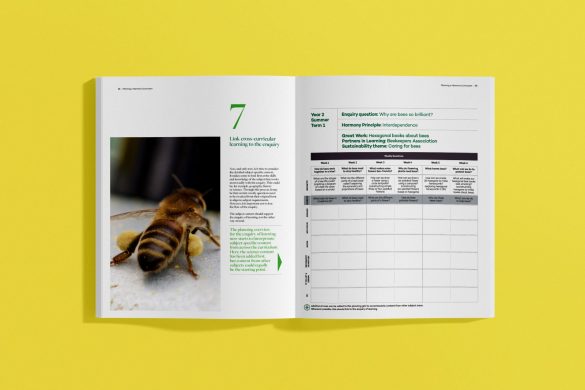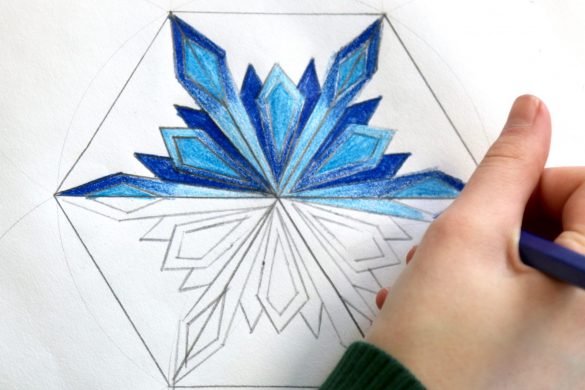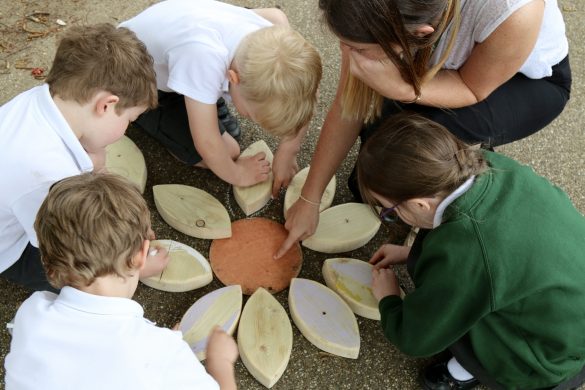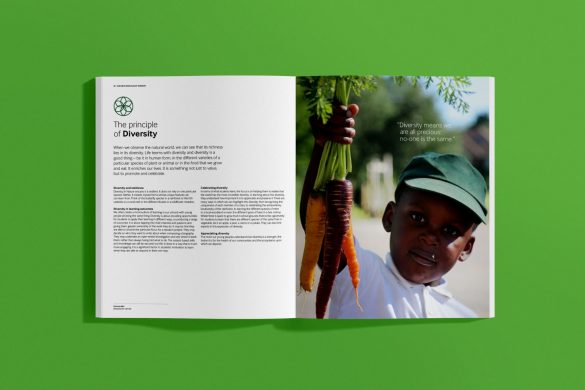Plan cross-curricular learning within an enquiry

Planning cross-curricular learning gives what is learnt meaning and context. Here’s how to get started.
With the sustainability focus, partners in learning and Great Work in place, and with the sequence of weekly questions and geometry activities planned out, is it time to consider the detailed subject-specific content.
It makes sense to look first at the skills and knowledge of the subject that works most readily with the enquiry. This could be, for example, geography, history or science. Through this process, it may be that certain weekly questions need to be tweaked from their original form to align to subject requirements.
However, it is important not to lose the flow of the enquiry. The subject content should support the enquiry of learning, not the other way around.
Match English skills and genres to the enquiry of learning
With the geography, history or science skills and knowledge in place, the next stage is to work out the genres of writing that will best fit into this enquiry and the texts that will best enrich the writing. Once the reading and the writing tasks have been decided on, attention should be given to the key grammar skills and vocabulary that need to be secured to enable the students to produce high quality writing. And, of course, the writing should be purposeful in enhancing the outcomes of the enquiry, be it a story, a letter, an information leaflet, an instructional text or a poem.
The more the writing can be shared or presented to another year group, to parents or to the wider community, the better. This helps give students a clear sense of the reader as they plan, draft and refine their texts.
By this point in the planning process, it is easier to see the English skills, knowledge and text genres that will fit well with different elements of the learning.
Select maths concepts that complement the enquiry of learning
Maths concepts do need to be practised and secured, but if that is all that happens in maths learning, then any meaningful application is lost. The planning overview should therefore highlight both the concepts that will be practised and secured, and how these concepts will enhance the enquiry of learning, possibly with links to geography and map work, historical data or scientific investigations and any information that may need to be collected or presented. The more the maths can be applied to the enquiry to bring it to life, the better.
Once the planning for the enquiry of learning has been developed to this point, there is an opportunity to plan maths investigations that allow students to apply their skills and understanding in a way that complements the rest of the learning.
Link content from other subjects to the enquiry of learning
The final stage of this planning process is to link other curriculum subjects to the enquiry. There may be a design technology project or a theme for a dance that fits well with the focus of the enquiry of learning. It may be more difficult to do in relation to a particular sport or a specific unit of learning in RE, for example. If there is really no link, it is probably better to teach the content separately as a one-off. The aim of all this planning, though, is to bring the principle of Interdependence to life – to show that just as natural systems work well because the elements are interconnected, so our learning is more meaningful when we seek connections and find opportunities to link learning together.
This way of approaching teaching and learning will help ensure that as our young people grow up, they develop a systemic understanding of how the world works, rather than seeing things in silos. This will be essential if they – and we – are to ensure a more sustainable way of life.



